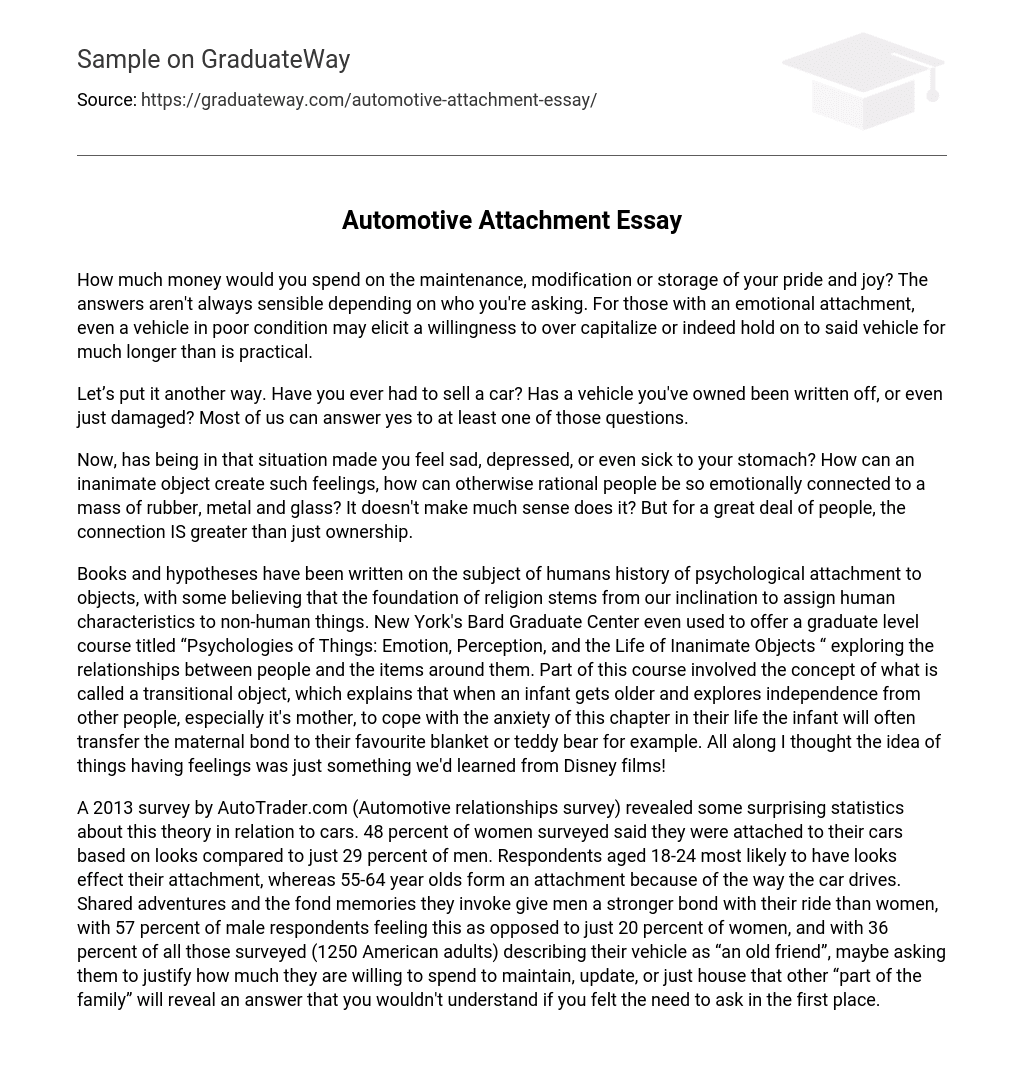How much money would you spend on the maintenance, modification or storage of your pride and joy? The answers aren’t always sensible depending on who you’re asking. For those with an emotional attachment, even a vehicle in poor condition may elicit a willingness to over capitalize or indeed hold on to said vehicle for much longer than is practical.
Let’s put it another way. Have you ever had to sell a car? Has a vehicle you’ve owned been written off, or even just damaged? Most of us can answer yes to at least one of those questions.
Now, has being in that situation made you feel sad, depressed, or even sick to your stomach? How can an inanimate object create such feelings, how can otherwise rational people be so emotionally connected to a mass of rubber, metal and glass? It doesn’t make much sense does it? But for a great deal of people, the connection IS greater than just ownership.
Books and hypotheses have been written on the subject of humans history of psychological attachment to objects, with some believing that the foundation of religion stems from our inclination to assign human characteristics to non-human things. New York’s Bard Graduate Center even used to offer a graduate level course titled “Psychologies of Things: Emotion, Perception, and the Life of Inanimate Objects “ exploring the relationships between people and the items around them. Part of this course involved the concept of what is called a transitional object, which explains that when an infant gets older and explores independence from other people, especially it’s mother, to cope with the anxiety of this chapter in their life the infant will often transfer the maternal bond to their favourite blanket or teddy bear for example. All along I thought the idea of things having feelings was just something we’d learned from Disney films!
A 2013 survey by AutoTrader.com (Automotive relationships survey) revealed some surprising statistics about this theory in relation to cars. 48 percent of women surveyed said they were attached to their cars based on looks compared to just 29 percent of men. Respondents aged 18-24 most likely to have looks effect their attachment, whereas 55-64 year olds form an attachment because of the way the car drives. Shared adventures and the fond memories they invoke give men a stronger bond with their ride than women, with 57 percent of male respondents feeling this as opposed to just 20 percent of women, and with 36 percent of all those surveyed (1250 American adults) describing their vehicle as “an old friend”, maybe asking them to justify how much they are willing to spend to maintain, update, or just house that other “part of the family” will reveal an answer that you wouldn’t understand if you felt the need to ask in the first place.





